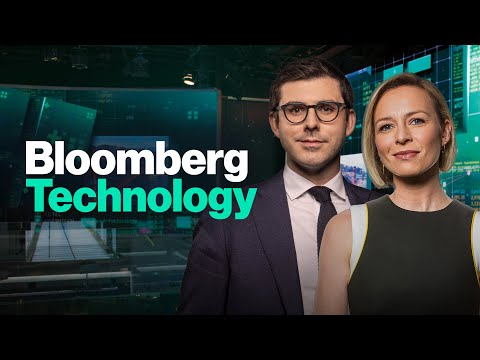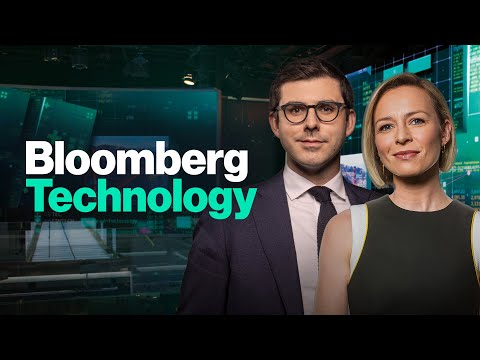heute journal vom 05.03.2023 Klausur Ampelregierung, Volkskongress Peking, Finnland Nato (english)

MAGICAL CASTLE IN MESEBERG? THE SEARCH FOR HARMONY IN THE COALITION TIMES OF REARMAMENT CHINA'S PEOPLE'S CONGRESS WANT MILITARY STRENGTH A BOOK FOR THE BIG SCREEN? THE LITERARY ADAPTION OF "THE SWARM" And now, the "heute journal" with Heinz Wolf and Marietta Slomka. Good evening. Schloss Meseberg, the official guest house of the Federal Government, was one of Theodore Fontane's favourite spots during his hikes throughout Brandenburg. He called it "the magic castle." At the closed-door meeting however, it was more reminiscent of Thomas Mann's "Magic Mountain," a sanatorium for a coalition crumbling under resentment and infighting. The "Süddeutsche Zeitung" did the math.
There are 30 controversial coalition projects that are not moving forward. The FDP and the Green Party in particular are in a permanent standoff. Patrizia Wiedemeyer reports. Claudia Roth, Federal Commissioner for Culture, was asked whether her coat was a political statement at the start of the closed meeting. Green-red, yes. But black?
"Yes, black. Good." "The coat is sparkly." The coat may sparkle, but this was not a statement on the state of the coalition, where very little sparkled or shined. The FDP and the Green Party in particular publicly fought over a number of issues. The agenda did not include every contentious issue.
Instead, it featured a guest to temporarily distract from internal political problems: EU Commission President, von der Leyen. But in the subsequent press conference, the Chancellor could not put off commenting on the coalition any longer. We have many plans to lead our country into the future. They involve many changes. That's why it's completely understandable that these steps involve intense discussion.
It would be easier do nothing and turn a blind eye to the challenges ahead. It is more challenging to ensure that we rise to the tasks at hand. The list of contentious issues are indeed challenging: Reducing bureaucratic hurdles, weapons laws and care reform, to name just a few.
We would like to see our coalition partner introduce laws to accelerate plans for railways and bridges in the German Bundestag next week. Trying to negotiate everything all together slows down decision-making, of course. In the case of accelerating plans for road construction, the Green Party is pushing back and slowing things down. This reminded me that we shouldn't get lost in ideological trench warfare. But they are not just arguing about planning acceleration.
The Green Party and the FDP also fought over biofuel, the future of internal combustion engines and, more than anything, about financing basic child allowance. A digital portal. That is what we agreed on. The Minister for Family Affairs needs to deliver on this, as she has promised.
I expect this to happen a little faster. What we really need now are political decisions. I've laid the groundwork, and others are now working on coming to an agreement.
There was some movement on the basic child allowance legislation, as the chairman of the Green Party reported in the evening. He made an appeal to the audience: It would be good for our budget's "Feng Shui" to stop attacking each other in public and take up the spirit of cooperation that we've shown each other on the inside. Olaf Scholz laughs. He is in a good mood. "Turning the tide and confidence" was one of the themes on the agenda in Meseberg. The Chancellor avoided delivering a new powerful statement.
Christian Lindner, leader of the FDP, is here with us from Meseberg. He is also, of course, the Federal Finance Minister. Good evening, Mr Lindner. Hello and good evening, Ms Slomka.
It's pretty cold in Brandenburg today. Can this conference help thaw the tension in the coalition's climate, so to speak? Don't worry about the climate of the coalition. We discussed many critical issues that hold great significance for our country. It will take some time before we achieve results. But it will result in good solutions, I am sure of that.
We recently saw your written correspondence with Mr Habeck, addressing each other formally as "Mr Colleague," while hurling various ironies at each other. So I think we can indeed worry about relationships within the coalition, especially in light of the many topics being disputed. If people write me letters, I will answer them politely. It is true that we have more difficult budget discussions. We have returned to adhering to the debt limit this year, but supported by the use of reserve funds, as was intended.
Next year, the debt limit must be adhered to without reserves, without tax increases, and with rising interest rates. That's where our priorities have to be. The easy way out is to spend more money and incur more debt, which will not be happening. As finance minister, I cannot leave room for doubt. because I have a responsibility to ensure that citizens are not overburdened by growing interest payments and higher taxes.
It's not just debt, debt limits or tax increases up for discussion. There are also climate issues. If you look at the major points of contention in recent weeks, like prioritising heating systems over rail expansion, the EU's ban on combustion engines.
It seems like the FDP is consistently shutting down proposals. The FDP ensures that our country remains on a course of practical reason. Climate policy is a crucial priority for us. It is a task for mankind. But it must be implemented in a socially and economically responsible manner.
Climate protection measures should be open to technology. It should be linked to economic opportunities. It is clear that a premature prohibition on all gas heating systems would be socially and economically unbearable for people. It also makes no sense for the climate. It is precisely the climate-friendly eco-fuel that we need for the existing fleet of passenger cars. And that's why we're making sure that our country stays on a middle course.
Hardly anybody outside the FDP sees it this way. Not even the heads of car companies. The CEO of Audi says that these eco-fuels you mention will not play a big role. The ADAC, General German Automobile Club, is not committed to it. The CEO of VW said the other day, "At best, this is still a niche role for small series manufacturers," by which he probably meant Porsche. We will see about that.
I see it somewhat differently. It is a technological option. Synthetic fuels make regular gasoline engines or even diesel engines environmentally-friendly. Neither you nor I, Ms Slomka, can determine how and to what extent this will prevail on the market, Customers and the manufacturers in the coming years and decades will make those decisions. Internal combustion engines will certainly continue to play a major role worldwide. And I am convinced that the best, most climate-friendly, most efficient combustion engines should be built by German manufacturers.
But German manufacturers... We're committed to technological freedom. German manufacturers themselves say that they will not produce exclusive, zero-emission cars. And in Brussels, there is talk of a Lex Porsche, and we know what a Porsche fan you are. Isn't it a bit embarrassing to hold back the entire EU for such a small segment? Germany is by no means alone, Ms Slomka. Germany alone could not stop legislation. There are some other countries, big countries, too, that have concerns here.
German manufacturers... -Poland and Italy are attached as well... I am very happy to hold my ground, Ms Slomka. Yes, sure. That's the way it is. The FDP makes sure that technological freedom is maintained for car engines. manufacturers who do not want to, have no obligation to do so. Customers should and will buy electric vehicles when it is desired or necessary. There should be more options to come in the 2030s.
We welcome criticism from those who do not agree. The FDP has left no room for doubt in the last five years on their stance. And now we are constructively bringing this stance into government action. It is also important that voters agree. The FDP said so themselves.
They were the party for drivers, for internal combustion engines, and for drivers who want to speed on the highway. But this brought them nothing in the last state election. To the contrary, you lost... -We do politics out of conviction. We do politics out of conviction, Ms Slomka. -Not for voters? And you cannot dissuade me from the fact that, technological freedom and free-market competition is always better than decisions from the Green Party's table.
We simply cannot know today what the most advanced technology in the 2030s will look like. We simply cannot know. Therefore, we shouldn't block paths for development.
That is the stance of the Free Democrats, if you want to take it to this party-political level. And we may be criticized for that. In any case, every man and woman knows where they stand with us, because we've had this stance for many years. Mr Lindner, thank you for the interview.
Thanks as well, Ms Slomka. We recorded that interview late this afternoon. Now we'll continue with the news, and we'll begin on a hopeful note, Heinz. After years of negotiations, members of the UN have agreed on a treaty to protect the world's oceans.
Federal Environment Minister Lemke discussed a historic success. An agreement reached at a conference in New York will improve biodiversity protection in high sea areas, among other things. These are areas outside of national borders, which make up about two-thirds of the oceans. In Estonia, nearly one million citizens voted to elect a new parliament today. Polls show the liberal Reform Party of Prime Minister Callas in the lead. The election campaign focused primarily on Russia's war of aggression against Ukraine, and its impact on national security.
Callas, who has been in office since 2021, is a staunch supporter of Ukraine. The initial results are expected tonight. Mayoral elections were held in Frankfurt am Main and Mainz today.
In Mainz, the independent candidate Nino Hase beat Green Party candidate, Christian Ehring in the runoff. He will become the new mayor of the Rhineland-Palatinate capital. There were no decisive results from the first round of voting in Frankfurt today. There will be another runoff vote in three weeks, after the preliminary result from the election between the former mayor Uwe Becker from the CDU and the planning department Chair, Mike Josef SPD. The New Synagogue Berlin Centrum Judaicum Foundation was awarded the Buber-Rosenzweig Medal.
This honours the foundation's contribution to Berlin's history and to a peaceful and plural society. The award ceremony marked the start of the Week of Brotherhood in Erfurt. The medal is named after the Jewish philosophers, Martin Buber and Franz Rosenzweig. It is awarded annually for understanding between Christians and Jews. In some respects, China's domestic political development has been similar to Russia's. In Soviet times, Moscow always had one strong man at the top, but at least he was surrounded by a political cabinet, which enabled discussions and power restraints.
Today, Putin reigns eternally, similar to China. Following the end of Mao's rule, there were different factions within the Communist Party that balanced out power and institutionalized changes at the top. That is no longer the case. Xi Jinping defied earlier term limits and age restrictions to become the absolute ruler. As of today, he also rules over the National People's Congress.
Miriam Steimer reports from Beijing. What looks like the world's largest parliament is in fact a sham parliament. It passes into law whatever the communist leadership puts forward. The conductor of the People's Congress is the delegate with the number 0642.
Xi Jinping's historic third term as president will be confirmed here. He continues to expand his power. Premier Li Keqiang also presented the government's work report for the tenth and final time. Officially, he withdrew for age reasons, although he is two years younger than Xi. He is firmly not in Xi's camp, in contrast to the man who will succeed him, Li Qiang.
He is not bothered that Shanghai's former party leader was responsible for leaving port city residents locked up in their homes in chaotic conditions for two months in the spring of 2020. The new premier, like everyone else in China's leadership are all people who are more or less loyal. He replaced the entire leadership all at once. Although the state leadership announced a victory over the Coronavirus two weeks ago, delegates had to wear masks and could only go between the hall and quarantine hotels. The effects of the pandemic are also reflected in the growth projection.
It currently lies at five percent, one of the lowest figures in decades. The main thing is that the economic figures are finally going up again. The second major issue today is China's army.
China will increase military spending by more than seven percent, with a clear mandate: strengthen military leadership, consolidate national defence and military reform, and accelerate development. Out on Beijing's streets, there are security guards on every street corner and every pedestrian bridge. You can't take a picture here during the Congress. You're not allowed to film here. Journalists also face restricted access to the hall. Only a few from democratically governed states were allowed to observe. ZDF, as well as ARD and many others, were not permitted inside.
It should be a People's Congress in accordance with Xi's taste. Everything is strictly controlled. The development in China doesn't bode well for world politics at this crucial point in time. The Russian war of aggression is destroying Ukraine, which is fighting against its own annihilation. But there are consequences for all of Europe. In recent weeks, Christian Sievers and Alissa Jung have highlighted people who personify this turning point in time.
In the fourth part of this series of reports, they travelled to Finland. There, they met Finland's Chief of Defence, General Timo Kivinen. Given that they share a border over 1000 kilometres long with Russia and their past experience with their neighbour, the Finns were always much more suspicious of Moscow than Western Europe, and are now even ready to join NATO. They are preparing for urban warfare here.
This unit should defend Finland's capital and protect Helsinki from attack. They practice under the watchful eyes of their defence chief. Things are going in the right direction, he says, but more training is necessary. They are going to repeat this sort of training several times. They are lined up in front of Finland's only four-star general.
Timo Kivinen is the highest military commander of an army that can call up nearly a million reservists in an emergency. That's one in every six residents. Throughout our history, we've fought several wars with Russia and the Soviet Union. We all know our neighbour is a strong power, and we need to be prepared to defend the country. In surveys, a large majority of Finns say they would be ready to take up arms and fight.
Practically everyone here has someone in their family who is doing or has done military service. Right foot back, secure stance, slight forward bend, and then you just do what you've got to do. In the 90s, we discussed whether we, like most of Europe, should dismantle our national defence. But we were wise enough not to do it. And now, it's paying off.
The general currently has 200 Leopard tanks at his disposal. With his official car, he can also drive underground, because half of Helsinki is a single bunker. The Finn doesn't want to be cruel with regard to the state of the German armed forces. He just wants to dispel doubts about his own defence capabilities, as there are in Germany. Embodying calm and security is what's expected from him here.
That's because their neighbour to the east is close. It's just a two-hour drive from Helsinki to the Russian border via an increasingly deserted highway. It's gotten quiet at the checkpoint, since Finland now accepts Russian tourists only in exceptional cases. Duty-free stores for visitors from the East are long closed. Finland lost one-tenth of its territory to the Soviet Union during World War II. People here have experienced much in their lifetime.
Sometimes, Russians try to come over here, but they are sent back again. Their shared border is over 1,300 kilometres long. That's the same distance as Hamburg to Rome, Just here behind the trees, a few meters further, Russia begins.
There are many "Do not enter" signs here, but no fence. This border is not really fortified. "Just don't start anything." Strict neutrality was the Finnish policy for decades. Now, the general is receiving national ambassadors from NATO countries in his barracks.
This is a historic shift for Finland. We anticipated that the discussion to join NATO would boil over. But no one expected public opinion to change so quickly. In the meantime, a large majority in parliament and the public are in favour of joining NATO.
The army poster reads, "Defence concerns us all." General Kivinen says that they don't want to threaten anyone, but NATO provides them with more deterrent potential. And Russia, he adds, only seems to understand "hard power." The language of the military. And hard power is what? It's different from soft power.
It's what you do. -Yes. And now, let's turn to sports from this weekend. Let's first look at football and the Bundesliga games from today. Bayer Leverkusen won four to one against Hertha BSC, Wolfsburg and Eintracht Frankfurt ended the match with a draw of two to two.
The new Formula 1 season has started in Bahrain. World champion Max Verstappen won against Sergio Pérez. And in third place, Fernando Alonso, who seemed overjoyed. He couldn't stop celebrating.
On the pedestal again at the age of 41. The last time was nine years ago in a Ferrari. And so the Spaniard stole the show from reigning world champion and race winner, Max Verstappen. Verstappen, except for one pit stop, stayed in the lead the whole time.
Charles Leclerc, in third position, had to exit after hydraulic problems. Fortune favours the brave. Alonso sees his chance. He passes the second Ferrari driver, Carlos Sainz, in his Aston Martin and takes third place. Nico Hülkenberg lost a front-wing part in the battle for position and dropped from 10th place back to 15th. Red Bull dominated: Verstappen first, Pérez second.
Schools of fish. Fascinating since time immemorial. For divers, there is hardly anything more beautiful than gliding into such schools and being surrounded by them. But you shouldn't think of Frank Schätzing, or you might feel queasy. When his 2004 bestseller "The Swarm" came out, people said that the material was begging to be made into a film.
It's the story of an unknown "swarm intelligence" in the ocean fighting against the destruction of its habitat. But it took almost two decades before the book moved to the screen, as a television series for ZDF in an international co-production. Claudio Armbruster reports on that, as well as critiques from Frank Schätzing.
It's something you contend with when adapting literature for the screen. Like many things in the world, as the saying goes, "The book was better." The mental images don't match those on the screen.
Film adaptations of literature are risky, especially with Frank Schätzing's "The Swarm." It was considered unfilmable. A 900-page book full of science, unknown life forms and catastrophes.
Despite this, "Game of Thrones" producer Frank Doelger took on the challenge. He has experience with filming literature. If this film adaptation is to succeed, it has to work for everyone, those who have read the book and those who have not. Every medium has its own rules, requirements and expectations.
And I think the most successful book adaptations are those that stay close to the spirit and soul of the novel. Frank Schätzing announced his displeasure just in time for the premiere of the series. Among other things, he thinks the production is ignoring current social and geopolitical developments. We have to take into account, first and foremost, the climate movement, the activists who are shaping our lives today. And if we want to set "The Swarm" in today's world, we can't ignore the role that China plays.
The big players in the world today are the United States, China in its competitive hegemonic drive, and of course Europe. Russia, nobody could have predicted, and the incredible power of the internet, fake news versus facts. All that belonged in the series. We had to part company on those, and I think that helped improve the filming.
Frank Schätzing and I didn't always agree. There were lively conversations. A lot he liked, but a lot he didn't. The audience will decide whether they like it or not.
The hardest part of the film adaptation was simplifying the science. Filming took place in 2021 in a huge water film studio near Brussels, with on-site marine biologist Antje Boetius as a scientific consultant for the production of "The Swarm." For me, it was fascinating to get to know the new stories and new actors. Compared to the book, many of the heroes are now women from all over the world, so to speak, who come together and fight for survival. It's methane hydrate, fire ice. Dead algae sink down to the ocean floor, and when they decompose, methane is created, which freezes under pressure.
Sometimes, pieces break loose and rise to the surface. I expect that a series like this, which many people will watch, will trigger this big question: How do we actually go on? How do we find harmony with nature, which is essential for all life on earth, including human survival? This is exactly what this series can deliver. Entertainment, excitement, food for thought for the future of man and the sea.
The first episode will be broadcast on Monday at 8:15 PM, but you can already watch it online in our media library. And with that, we are almost at the end of our program, but of course not without our Sunday preview of the week ahead. Anna Kleiser gives a preview of some events that she will be reporting on.
Defence Minister Pistorius will visit soldiers in Lithuania at the beginning of the week. Germany leads the NATO unit that has been training there for emergencies since 2016. An additional combat brigade is currently reinforcing a defence manoeuvre.
Political talks are planned for Tuesday. On Wednesday, women around the world will take to the streets for their rights. One focus this year will be solidarity with women in Iran. In Berlin, rallies are planned at the Iranian Embassy.
Turkey is still blocking Sweden and Finland from joining NATO. On Thursday, the countries will negotiate with each other again in Brussels. However, a breakthrough is not expected.
In addition to Turkey, Hungary's ratification is also missing. On Saturday, the course will be set for a reform of the Catholic church in Germany. The Synodal Path will come to an end. Decisions on sexual morality, women in the Church and the blessing of homosexual couples are expected. The Vatican rejects profound changes. Now, next week's rather unpleasant weather prediction.
Tomorrow will be cloudy. It will be somewhat clear in the northeast. Some rain and snow is expected in the centre. Lower Saxony to Brandenburg will see heavier rain and snow at one to seven degrees. On Tuesday, it will be stormy in the north, with snowfall in the centre. From Wednesday, it will be very wet in the south, with more snowfall over the centre.
Highs will be between two and ten degrees. That's it for us this Sunday evening. Tomorrow, Christian Sievers and Hanna Zimmermann. And at 12:25 AM, the next "heute express" will air.
Goodbye. -Goodbye.
2023-03-07 10:37


